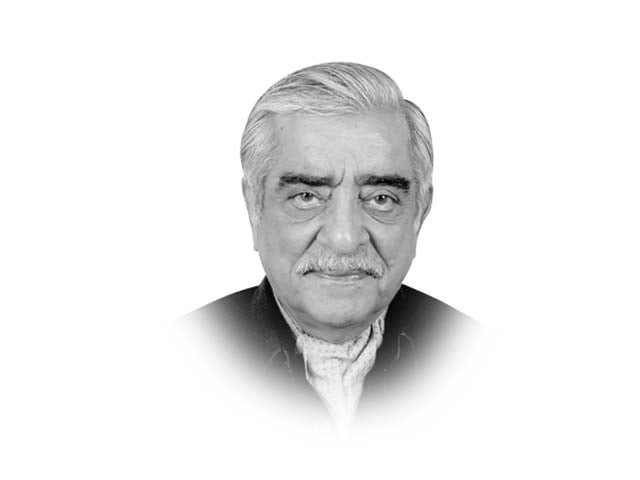Pakistan and Afghan reconciliation — I
It would be in Pakistan’s interest to canvass vigorously for the maintenance of foreign assistance to Afghanistan.

Without going into the long and sorry history of our past involvement in Afghanistan and assuming that having realised the costs such an involvement has imposed, we are now really serious about wanting to see a sovereign independent Afghanistan. Thus, our military and civilian leaders have to get together and determine the changes in policy that will be needed on our part to bring about this independence, while reducing the costs that Afghanistan continues to inflict on our economy and our body politic.
What are the factors, independent of our policy that will need to be borne in mind?
First it is apparent that even if a recent World Bank report, which maintains that 97 per cent of the Afghan economy is tied to international military and donor spending, there can be no doubt that the withdrawal of foreign troops by 2014 will considerably reduce the size of Afghanistan’s GDP, currently estimated to be $16 billion considerably. The current unemployment rate, estimated to be 40 per cent, will climb and bring more families under the poverty level. Unless there is a considerable injection of foreign assistance and this assistance is better spent than has been the case in the past, more Afghans particularly from the south and east will become economic refugees in Pakistan adding to the strains that the large refugee presence has already placed on a beleaguered Pakistani economy and compound the difficult demographic situation in Balochistan. It would be in Pakistan’s interest to canvass vigorously for the maintenance of foreign assistance to Afghanistan and for directing more of it to the southern and eastern provinces.
Second, President Karzai’s hold on power has been seriously weakened by the loss of his half-brother Ahmed Wali Karzai and other trusted aides, including the mayor of Kandahar and the police chief of Kandahar province — his major power base. His quarrel with the Afghan parliament remains unresolved even though he climbed down from the position of requiring, in line with the decision of a special tribunal the Afghan Supreme Court had set up at his behest, the unseating of 62 parliamentarians to accepting an Independent Election Commission (IEC) ruling that only nine will be unseated. It is significant that not one of these nine is from Ghazni province, where despite the Pashtun majority all the seats went to the Hazaras and which provided a large part of the rationale for seeking a re-evaluation of the election results. Politically, this was a serious defeat for Karzai. It is probable that since the UN and by extension the US has endorsed the IEC the furore in parliament will die down but this does not mean that parliament will be more inclined to cooperate with Karzai or to endorse his choice of ministers and any legislation that he may propose. Karzai has also let it be known that, in accordance with the constitution, he will not seek a third term when his present term expires in 2014. Ordinarily this is what was to be expected but prior to his quarrel with parliament and the tragedies in Kandahar it was the assumption that Karzai would propose a constitutional amendment to permit him a third term. His announcement may reflect a pragmatic recognition that his legendary political skill would not suffice to secure the constitutional amendment, but to my mind it reflects a certain depressed frame of mind.
His successor — the US and Nato, and most Afghans would agree — must be a Pashtun since even in the distorted estimates of the Nato, the Pashtuns represent the plurality among the ethnic groups in Afghanistan. Karzai is said to favour Mr Farouq Wardak, the education minister and the lead Karzai representative in the High Peace Council. From the perspective of Karzai and his probable successor, it is important that Pakistan be seen as being supportive of a moderate Pashtun president being elected in 2014 and being supportive in the meanwhile of efforts at reconciliation in which the moderate Pashtun rather than the Taliban remain or become the flag bearers of Pashtun nationalism in Afghanistan.
(To be continued)
Published in The Express Tribune, August 29th, 2011.














COMMENTS
Comments are moderated and generally will be posted if they are on-topic and not abusive.
For more information, please see our Comments FAQ